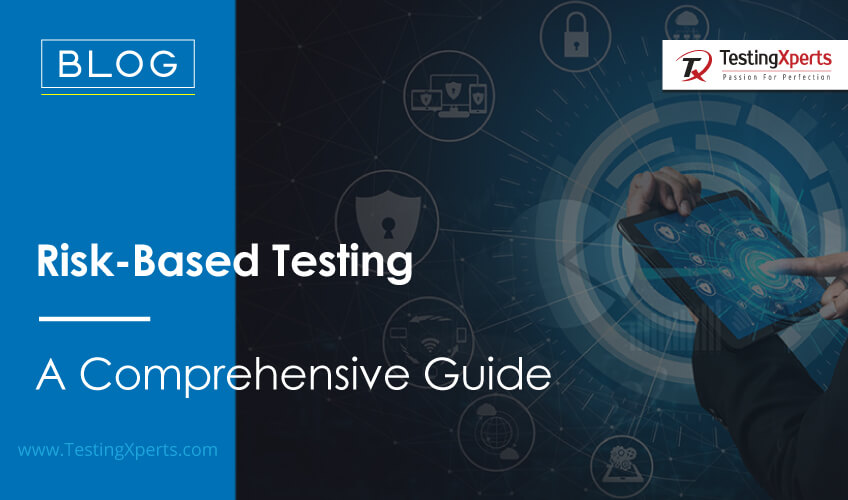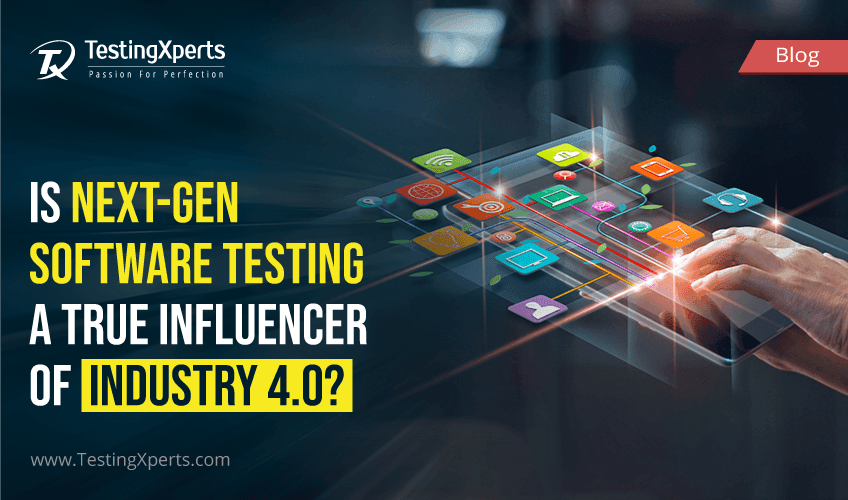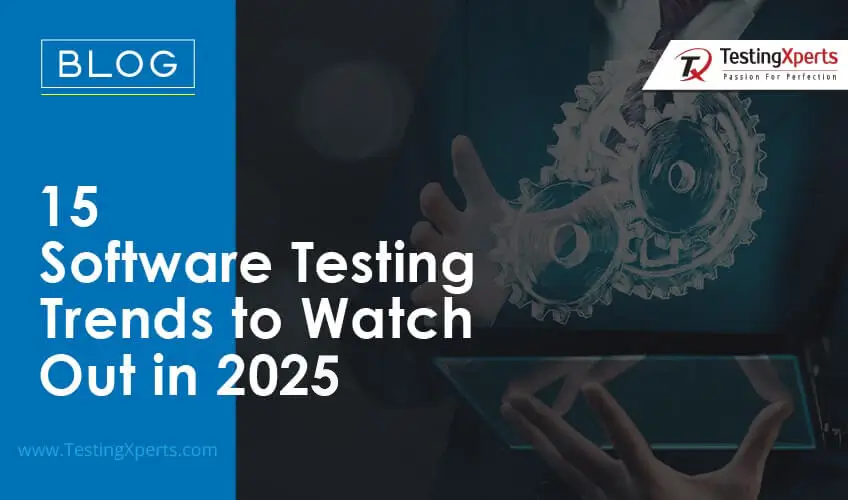
In today’s era as technology is evolving, the software development and the testing world is also innovating ways to incorporate emerging technologies such as Artificial intelligence, Machine Learning, big data, etc. to provide quality software to customers. IT enterprises must keep pace with the emerging software testing trends to keep innovating processes and at par with technological innovations.
We have curated a list of Top 15 software testing trends that you should watch out in 2025.
- Test Automation to lead the way for Agile & DevOps
- Usability Testing to lead the charts for user experience
- Big Data Testing to continue empowering businesses
- IoT Testing to boost digitally connected smart devices
- AI & ML in Testing to top the ladder
- Blockchain Testing to usher more prominence
- Cyber Security Testing to become foremost necessity
- RPA Testing to dominate automation in 2025
- Performance Testing to shift towards performance engineering
- QAOps to take a leap in 2025
- Mobile Test Automation to dominate 2025
- Use of Scriptless Automation to move up
- Connected & Multi-devices Testing to go mainstream
- Penetration Testing to gain more significance
- Hyperautomation to lead the charts in 2025
Software Testing Trends to Watch Out in 2025
1. Test Automation to lead the way for Agile & DevOps

With the latest Agile and DevOps processes on the go that brings in faster and quality releases, many enterprises continue to leverage and adopt test automation. Undoubtedly, test automation has already penetrated the industry in testing repetitive tasks quickly and efficiently. With DevOps substantiating proper collaboration between all allied departments of Dev and Ops, test automation tools continue to lead the software testing space. The proper usage of test automation tools helps to achieve faster release cycles, better quality software and deliver’s quicker ROI.
According to Globenewswire – the global automation testing market is expected to grow up to USD 29,525.87 million by the end of 2025. This growth in the automation testing market is due to the increased importance of AI and ML in the testing process which helps to reduce the testing life cycle. Test Automation continues to dominate the software world as it helps to speed up the testing process, achieve faster feedback from the customer, increases the product quality, and helps to achieve faster delivery which is essential for achieving success in today’s highly competitive business environment.
2. Usability Testing to lead the charts for user experience
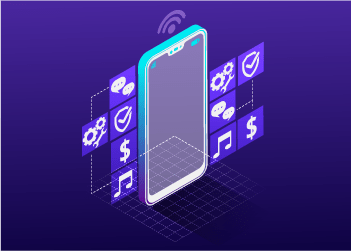
With the rapid influx of mobile apps, especially the eCommerce, banking, insurance applications, etc. it has been seen that the significance of software testing has been witnessed more to effectively test these apps across operating systems, platforms, and devices, etc. Undoubtedly, today, mobile apps continue to be the major business enablers; an effective and great user interface with a streamlined usability flow is the need of the hour for all these apps. Mobile users continue to show a preference for apps that have great usability embedded in them. Poor usability can affect customer and brand loyalty; hence usability testing identifies all the flaws if any before the app is actually released into the market.
For an app to stand out in the crowd, the app should provide seamless navigation and user experience to end-users. With the increased usage of mobile apps, user experience continues to remain the primary focus for all businesses and enterprises. Therefore, usability testing continues to hold more importance in determining the success of an application as it helps in assessing the application’s navigation flow and ensures to deliver a seamless and great user experience for such usability tested apps.
3. Big Data Testing to continue empowering businesses
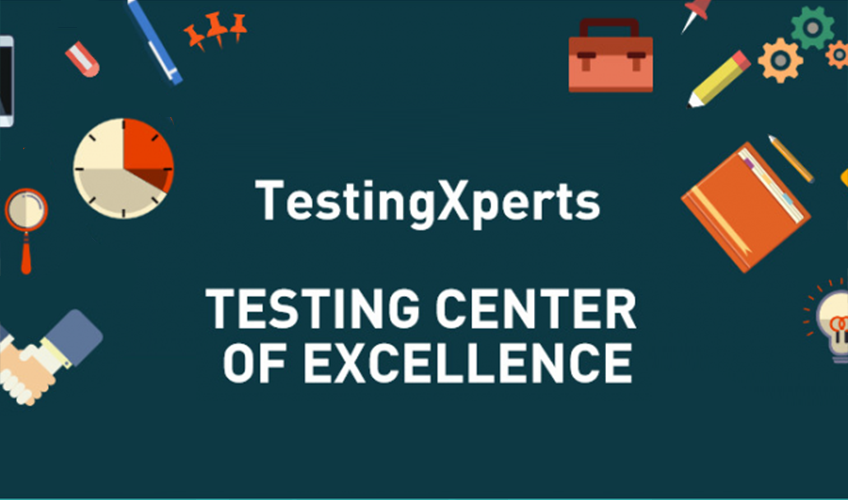
Enterprises across industries continue to deal with huge data volumes and diverse data types. The mining of any amount of structured or unstructured data defined as Big data needs effective testing. Big data testing helps to make improved decisions with accurate data validations, and helps improve market targeting and business strategizing with informed decisions drawn from this big data analysis.
According to Globenewswire -The global big data market value is projected to grow from USD 138.9 billion in 2020 to USD 229.4 billion by 2025. This growth is due to the increased use of IoT devices in organizations, and due to the increased initiatives by the governments to enhance the usage of digital technology. Huge dependency on data across all industries requires effective big data testing to ensure quality, accuracy, and integrity of data that is essential for making informed decisions by all organizations. Specifically, big data testing helps to make data-driven decisions about various products & services which are captured and analyzed to deliver valuable insights to organizations.
4. IoT Testing to boost digitally connected smart devices

It is expected that by 2025, there will be approximately 27 billion connected IoT devices. These figures represent the massive expansion and the need for an effective IoT testing strategy. This IoT testing includes the testing of operating systems, communication protocols, along with software and hardware of the IoT devices. Most enterprises have already started identifying the need for an effective IoT testing strategy to enable efficient and well-connected smart devices that are much needed for end-users.
Especially, testing for vulnerabilities in IoT devices is an emerging business need as IoT typically encompasses all products that are connected to the internet in one way or the other. IoT systems collect data while in usage from various interconnected devices and share information with their manufacturers without the users being aware of it. Further, manufacturers in their haste to get new design features for smart products continue to overlook the complications arising out of security concerns of the system’s software and hardware.
There is a possibility of vulnerabilities seen in the hardware (chipset) of many new IoT products which is susceptible to multiple threats that need to be effectively tested. Even the software that is included in the IoT devices usually does not get any sort of security testing done while at the manufacturers end. Thus, numerous IoT devices continue to get hacked due to the susceptibility affecting the entire network of users. Hence, it is essential to get all the IoT products and devices security tested to avoid threats and vulnerabilities.
According to Globenewswire – the IoT testing market value is expected to grow up to USD 3624.23 billion by 2025. This growth in the IoT testing market is due to the increasing adoption of the smart cities concept initiated by the governments and the keen interest of organizations towards incorporating IoT in their processes. Increased use of IoT in the healthcare sector will be a new trend that can be expected due to the current pandemic. As more and more devices are getting connected and a large amount of data is transferred across these devices, a huge rise in IoT security testing services will be the new trend in the upcoming years to ensure data safety.
5. AI & ML in Testing to top the ladder

According to a leading research analyst, Artificial Intelligence (AI) is omnipresent in all spheres of technological innovations and is among the top investment priorities of CIOs. The market for AI is expected to be around $6-7 billion in North America alone. Machine Learning (ML) and user interfaces such as speech recognition and gesture recognition will advance in the future. The prediction of various tasks based on complex neural networks and algorithms will change the outlook of technology and inevitably these AI & ML based applications also need rigorous testing and validations with proper use cases to become successful.
With the world completely moved towards digital transformation, there is a lot of pressure to balance market requirements and build a system that is predictive and scalable to cater to the future needs of the software. Primarily, software testing needs to embed AI into testing which perfectly imitates human behavior using machine learning and predictive analytics. Going forward for the upcoming latest applications in the connected world needs software testing to leverage AI and ML to automate.
According to Globenewswire – the global artificial intelligence market is expected to be $92 billion by 2030. The current pandemic has led to increased use of transformative technology including AI technology. There are many areas where AI-based technology is playing a vital role. AI-based robots are minimizing contacts between humans, especially contact tracing apps are one of the greatest examples that showcase the use of AI in healthcare which is widely being used today. Also, AI-enabled drone-based delivery will be the new trend in the upcoming years.
6. Blockchain Testing to usher more prominence

There is a rapid expansion of the virtual currency named as bitcoin’s usage. A recent report by McKinsey states that Blockchain is a nascent technology with the potential to bring about step-function improvements in financial transactions. Blockchain testing helps to enable smart contracts and ensures fraud protection.
Undoubtedly, blockchain technology has revolutionized the way businesses are dealing with digital currencies such as bitcoin. These blockchain applications are not limited to the financial world and their smart contracts are being used in every field of business from the energy sector to governmental services. The wide range of blockchain applications brings in new challenges to blockchain debugging. Moreover, once the smart contract is implemented, its execution cannot be reversed, and hence, smart contract codes define how seamlessly the software performs even with the increased workloads. Hence, this entire process of Blockchain testing calls for efficient outsourced next-gen specialized testing services, for debugging the code to deliver productive blockchain applications.
According to Marketsandmarkets – the global blockchain market size is expected to grow up to USD 39.7 billion by 2025, it is expected that a combination of IoT devices and blockchain technology via smart contracts will enable microtransaction between the two parties which will be an emerging trend. Moreover, a recent PWC report shows that 77 percent of financial institutions are expected to adopt blockchain technology as a part of an in-production system or process by 2020. These statistics deciphers the rising scope of blockchain technology and the need for blockchain testing.
7. Cyber Security Testing to become foremost necessity

Undoubtedly with the digital revolution, there has been the emergence of various security threats. The CIOs of enterprises continue to realize the importance of security testing of their applications, network, and systems to ensure not only secure transactions but complete protection of their customers critical data. Thus, security testing has gained a lot of importance as it safeguards the brand loyalty and prevents economic losses.
According to Marketsandmarkets – It has been observed that post COVID-19, the global security testing market size is expected to grow to USD 16.9 billion by 2025, at a Compound Annual Growth Rate (CAGR) of 22.3% during the forecast period.
This growth in the security testing market is due to various factors such as increased cyberattacks during the pandemic, increased usage of web-apps, and mobile-apps requiring high-end security, increased focus of organizations towards protecting customer data, and also the increased initiatives by governments and organizations to adopt digitization. Moreover, it is also predicted that the rise in the cybersecurity testing market is likely to leverage the implementation of the latest technologies such as DevOps, DevSecOps, and Agile in the IT industry.
8. RPA Testing to dominate automation in 2025

The Robotic Process Automation (RPA) can also be named as an extension of automation as it can be applied to anything which is in a structured form, unlike automation which needs a software product to work upon. RPA can be used with very complex processes that can be automated with AI. Specifically, it is a style of automation wherein a machine, or computer mimics a human action and helps in the completion of rule-based tasks with the help of developed robots. Hence, this robot led automation has the true potential to change the workplace and does all tasks performed by the automation testing tools.
According to Globenewswire – the Global Robotic Process (RPA) Automation Market size is expected to reach $7.2 billion by 2025, rising at a market growth of 32.6% CAGR during the forecast period of 2019-2025. This increased growth in RPA is due to its ability to help businesses remain competitive by automating their repetitive business processes. RPA in software testing is already helping testers by replacing regression and load testing, thus saving considerable time and effort.
In the upcoming years, RPA is expected to hold more importance in helping organizations to improve their way of working. RPA testing will let testers automate large and complex data through an easy-to-use interface. Modern businesses will be able to give commands to already taught robots to perform several tasks easily thus saving a lot of time and human effort. It is also expected that the use of RPA in the healthcare sector is likely to increase to provide better healthcare facilities to people across the globe.
9. Performance Testing to shift towards performance engineering
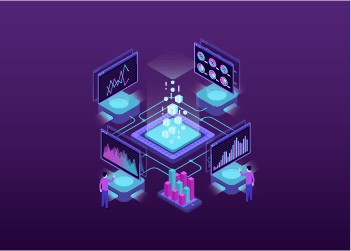
Product performance has earlier been the major segment of testing but now, it has been shifting towards performance engineering which is not an easy process. The performance engineering process involves the collaboration of hardware, software, configuration, performance, security, usability, and it ensures to deliver the highest value that exceeds end-user expectations.
As per Google, 53% of visits are abandoned if a mobile site takes longer than three seconds to load. The increased demand for fast loading and high performing web and mobile apps necessitates the need for performance testing and performance engineering to be taken up for all apps. Also, since the DevOps teams continuously deploy applications rapidly and quickly, performance engineering of these applications is in high demand for today’s applications.
10. QAOps to take a leap in 2025
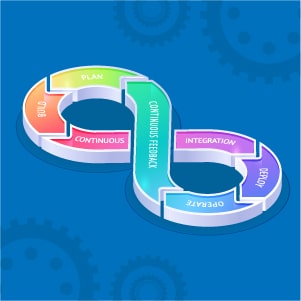
The digital world is effectively in need of software applications that are released faster and with no compromise on the quality of the applications. Earlier, the need for testing teams was limited only for performing application testing, but now the importance of QA is effectively increasing. QA is playing a crucial part across all phases of products software development. Moreover, with DevOps taking a leap, this approach brings about a collaboration between the development and the operations teams with no silos. Thus, the combination of QA and DevOps brings a new practice called QAOps or DevTestOps which is likely to lead the trends.
With this practice, the testing, development, and operation teams can be on the same line by effectuating proper collaboration between all these teams. Hence, with this QAOps approach, continuous testing can be combined with DevOps, and thus assures software changes are made effective with the practice of Continuous Integration (CI) and Continuous Delivery (CD). Therefore, software testing is not practiced at indefinite intervals and the applications are delivered with quality and without delays continuously as businesses can go to market with new features more quickly than before.
11. Mobile Test Automation to dominate 2025
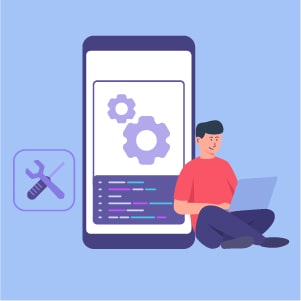
Mobile phones have become a very popular medium and this has enhanced the rise of mobile applications. Enterprises are choosing the pathway through mobile apps as an easy way to reach users. And, to ensure that mobile apps work efficiently for users, automation testing for mobile applications is essential.
Moreover, with the rising mobile app market, the need for mobile testing with automation tools becomes crucial. Considering these effective needs, there are many automation testing tools for mobile applications which can be leveraged to enable flawless and high-quality mobile apps.
According to Globenewswire – the global mobile application market size was valued at US $126.04 billion in 2019 and is expected to expand up to US $408.13 billion by 2027, at a CAGR of 18.6% over the forecast period of 2020-2027. Also, the mobile application testing services (MATS) market is expected to reach USD 8.23 billion by 2025, at a CAGR of 15.37% over the forecast period of 2020-2025 as per a leading research analysts data. These statistics depict the increasing use of mobile applications worldwide followed by the increased need for mobile application testing.
The driving factors behind the growth of the mobile test automation market include increased competition among app developers, and the organizations demand for faster and quality releases, and the increased focus of enterprises on improving customer experience which is all ensured with effective mobile app testing by next-gen mobile app testing services.
12. Use of Scriptless Automation to move up
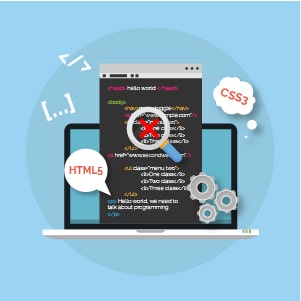
Software testing is effectively seeking many advancements and improvements continuously. Every change and advancement in this field is helping the teams in releasing applications faster with effective quality assurance. Among the many such advancements, scriptless automation is one of the important trends to look in 2025 that is likely to reduce human efforts and help in accelerating the app quality to achieve quicker ROI.
With Scriptless automation, there is no more the issue of coding for test engineers for automating test cases. This is an effective advancement that will help to deliver quality results faster by reducing the coding time. Today, more and more organizations have started using scriptless automation tools as it allows the teams to save time involved in writing long scripts and codes, and drastically reduces the efforts involved in manually testing the product. Also, since scriptless testing tools bridge the gap between non-technical and technical teams, it is widely being adopted by many organizations and therefore scriptless automation testing tools continue to remain in the list of latest software testing trends to be watched out for in 2025.
13. Connected & Multi-devices Testing to go mainstream
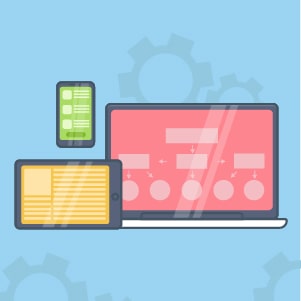
The use of mobile devices is effectively increasing today, and this is increasing the need for automation testing on a range of devices. However, this is not only limited to mobile devices, it is for many devices such as wearables, smartphones, smart speakers, health monitors, etc. Thus, this year, multi-devices automation testing for over a range of devices will take mainstream.
As per Statista – By 2025, there will be more than 75 billion Internet of Things (IoT) connected devices in use. These IoT connected devices not only include smartphones but includes a wide range of connected devices such as smart home security systems, wearable health monitors, biometric scanners, smart bicycles, smart fire alarms, medical sensors, etc. and all these devices should be end-to-end tested leveraging digital testing services to ensure their quality and seamless usability.
14. Penetration Testing to gain more significance

Across all industry sectors, today the networks, apps and infrastructure continues to face cyber threats and attacks due to the vulnerabilities they are prone to. Especially, the mobile and web applications have the most chances of facing vulnerabilities such as hacking as cyber attackers continue to cause lot of economic losses to many businesses. Thus, organizations need to implement successful security strategies for achieving systems that are secured and work efficiently for achieving business goals. And, to do this, it is necessary to include penetration testing into software testing practices. With this testing practice, it becomes easier for the teams to validate the effectiveness of the systems and app’s security controls and identify the risks that are exposed to vulnerabilities.
According to PR Newswire – the Penetration Testing Market is projected to grow up to USD 4.5 billion by 2025, at a Compound Annual Growth Rate (CAGR) of 21.8% during the forecast period of 2020 to 2025. The major growth drivers that led to the growth of the penetration testing market are increased sophistication of cyber attacks, increased measures taken by enterprises to safeguard their applications, systems, and networks. Also, since the use of AI and ML is increasing in today’s world, it becomes essential to perform penetration testing to ensure the safety of IT infrastructure. Therefore, penetration testing continues to stay in the list of software testing trends in the year 2025.
15. Hyperautomation to lead the charts in 2025
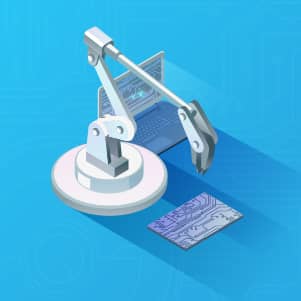
Automation has already created a lot of buzz for many years as businesses are automating time-consuming, repetitive human tasks with the help of machines and technologies to save their time, cost, and free-up humans for more valued tasks. But, now the business world is ready to take automation to next level with hyperautomation. This new process of Hyperautomation starts with RPA at its core and uses advanced technologies such as AI, and ML, in combination with packaged software and automation tools to automate processes and augment humans.
Hyperautomation can be used in the banking and insurance sectors to automate tasks such as loans, mortgage, and insurance processing, that can help in the instant sanction of loans by simplifying the legal documentation and other processes. Hyperautomation in the automobile sector is already helping by placing the robotics arm in an assembly-line which fastens the assembling process and increases productivity. Hence, it is predicted that hyperautomation is soon to lead the charts of software testing in the forthcoming years.
Conclusion
As we continue to live in a world driven by technology, it becomes important for businesses to keep themselves updated with the upcoming software testing technology trends. New-age technologies like AI and ML have been there in the industry and will continue to be the trend for upcoming years, while mobile test automation is expected to dominate the market along with hyper-automation which is likely to lead the charts in 2025.
Leverage next-gen software testing services to ensure your products are fully functional and deliver great CX to your end users.
Discover more
Get in Touch
Stay Updated
Subscribe for more info



